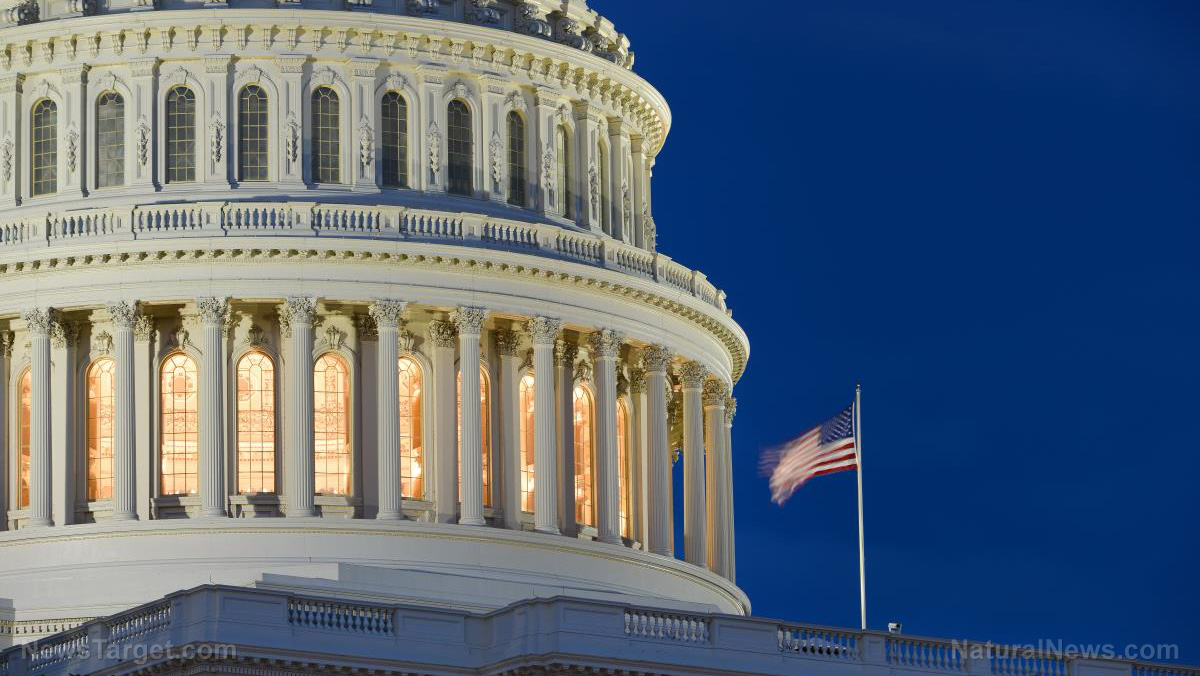 Parler
Parler Gab
Gab
- Senate moves to eliminate 91-year-old NFA taxes on short-barreled firearms and suppressors.
- GOP legislation removes "Any Other Weapons" category from federal firearms taxation.
- Congressional Byrd Rule hurdles test whether tax reforms survive Senate procedural challenges.
- Grassroots gun-owner pressure drives legislative wins amid historic pushback against 2nd Amendment infringements.
- Final bill must still pass Senate and White House approval to become law.
Key provisions threaten legal foundations of NFA commissions
The bill text leaked Monday night by the Senate Finance Committee revealed a deliberate strategy to destabilize the NFA’s tax obligations, which require all SBR, SBS and AOW owners to submit to FBI background checks and pay a $200 fee. By removing these categories entirely, legislators argue they are targeting unconstitutional overreach. "Congress has every right to rewrite taxes," said GOP tax lawyer and bill architect Sen. Rand Paul during a Tuesday hearing. "When Al Capone was convicted using the NFA, that was a just application. Today, applying it to farmers silencing grain-cleaning shotguns? It’s absurd." Gun Owners of America (GOA), which lobbied extensively for the reforms, celebrated the textual shift. "This is the fulfillment of 50 years of work," said GOA founder Erich Pratt in a press statement. "Every unnecessary tax is a slight against the right to use firearms in lawful ways."Byrd Rule battle: “Fly under Washington’s bureaucratic radar”
A decisive obstacle looms as the bill advances to the Senate floor: the Byrd Rule. This obscure parliamentary tactic tests whether provisions are "sufficiently related to the budget" to stay in legislation. If a rule is deemed "policy over tax reform," senators can vote to gut it. Parliamentarian ruling on the firearms provisions could hinge on a narrow interpretation. Advocates argue removing taxes is a pure revenue issue — but opponents insist that taxing exemptions constitute de facto gun policy. "Democrats will scream ‘muzzleloader socialism’ to describe losing their weapon-control tools," warned Sens. John Kennedy during floor debate. "But we’re following the rules. It’s a tax bill, so we’ll frame this as a tax decrease in a tax bill." The National Rifle Association’s Institute for Legal Action has issued a brief projecting a constitutional win for the GOP’s framing. "The tax code is Congress’s prerogative. Unless the Byrd Rule justices see themselves as unelected lawmakers, they’ll uphold these changes," said the report.From gangster crackdown to modern crosshairs
The NFA’s original iteration was a New Deal response to the St. Valentine’s Day Massacre and Tommy gun-fueled violence, requiring gangs to surrender weapons and pay $200 yearly. However, modern critics argue its modern-day application has morphed into a regulatory labyrinth. Notably, 2023’s Bostock v. Busey Supreme Court case denied firearm owners exemption from county bans on AOWs, forcing advocates to pursue taxes-as-policy tactics. Meanwhile, the Biden administration’s 2022 reinterpretation of pistol braces as "rifles" under the NFA (despite 2019 ATF rulings) has galvanized GOP reform pushes. "Gun owners just want to return to clarity," stated Sen. Tom Cotton. "The 89-year-old tax code can’t keep up with a Maplewood grandmother cleaning a silencer-armed firearm. Courts and Congress must adjust."Grassroots rallying: Calls to "finish the fight"
GOA has mobilized members to engage directly with lawmakers, touting over 500,000 phone calls spurring the House’s suppressor provision. The group directs constituents to petition the Senate to retain SBR/SBS tax removal pending the Byrd Rule. "Forcing senators to vote for sunset clauses on Al Capone’s taxes makes this bipartisan," said GOA policy director Benjamin Sanderson, noting that 280 Republicans and 17 Democrats (including Sen. Kyrsten Sinema of Arizona) supported the House’s earlier steps.The Senate’s implicit choice between progress or tradition
As the Big Beautiful Bill winds through the Senate, lawmakers face an emblematic test of legislative priorities. Removing NFA-era taxes resists incremental "cash register gun control," but triggering a Byrd Rule fight could unravel decades-old precedents. With polls showing 67% public opposition to NFA taxes—according to a GOA/Gallup study last fall—the question isn’t whether reform is popular, but whether lawmakers will defy bureaucratic inertia to act. “Whether we free gun owners by yearend depends on whether Sen. [Chuck] Schumer won’t weaponize parliamentary rules,” mused Sanderson. For now, the battlefield stays loaded. The spokesperson may not be able to resolve this dilemma alone, but many are confident in the long-standing established interpretation of the scope of authority under the Lautenberg rules. Only time will tell whether such tax exemptions will expand into broader regulatory authority or merely free up cash flow for gun enthusiasts. Sources for this article include: ZeroHedge.com X.com ZeroHedge.comReport: Five major hospitals defy Trump order, continue child gender transitions
By Belle Carter // Share
White House engages in geopolitical judo: Is Trump playing ‘5D chess’ against Netanyahu?
By Finn Heartley // Share
The censorship cartel crumbles: Trump’s FTC is exposing the left’s war on free speech
By Lance D Johnson // Share
Texas mandates warning labels for foods with additives banned abroad
By Cassie B. // Share
California NGOs have been aiding illegal immigrants to avoid ICE raids
By Laura Harris // Share
Governments continue to obscure COVID-19 vaccine data amid rising concerns over excess deaths
By patricklewis // Share
Tech giant Microsoft backs EXTINCTION with its support of carbon capture programs
By ramontomeydw // Share
Germany to resume arms exports to Israel despite repeated ceasefire violations
By isabelle // Share










